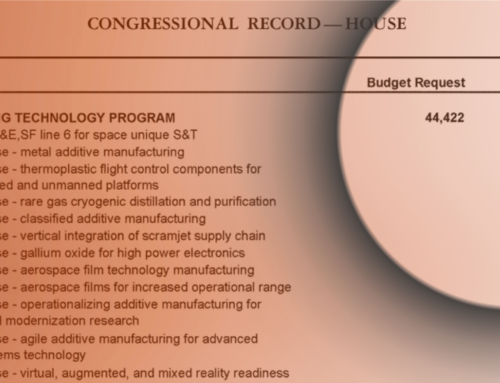On July 9, the U.S. Senate Armed Services Committee performed one of the constitutional duties of the Senate by holding a confirmation hearing for the nominee for chairman of the Joint Chiefs of Staff. Marine Corps Gen. Joseph Dunford was selected by the president to replace retiring chairman Gen. Martin Dempsey.
On that same day, the Army released specific plans to meet a previously announced goal of reducing troop strength by 40,000 soldiers. And just two days before that, the secretary of defense and Dempsey were in front of the same committee to discuss “Counter-ISIL [or the Islamic State group] Strategy.” So it was no surprise that many of the questions for Dunford centered on topics related to these recent revelations.
I wish I could say the questions were thoughtful demonstrations of senators balancing the security needs of the entire nation and identifying priorities within the context our current resource-constrained environment. But there's nothing like the specter of force reductions to bring out provincialism and short-term thinking from both sides of the aisle.
Sen. Dan Sullivan, R-Alaska, jumped right in by asking about the possibility of cuts to the U.S. “cold weather-trained warriors in the Arctic” prior to the completion of a new strategy. When Dunford asked what cuts Sullivan was referring to, the answer made the senator's interests clear: “Well, there's only certain forces in the Arctic right now, they're all Alaska.”
Sen. Mazie Hirono, D-Hawaii, jumped in with an equally parochial line of questioning, pointing out that there were cuts proposed to U.S. Pacific Command, headquartered in Honolulu, and expressing her relief that Army Chief of Staff Gen. Raymond Odierno had made supportive remarks about maintaining a strong Pacific Command in light of “the rebalance to the Asia-Pacific.” In other words, we'd like to confirm you as the new chairman of the Joint Chiefs of Staff, and make cuts if you must, but not in my backyard!
We've come to expect this from members of Congress, unfortunately. But shouldn't the members of the Senate committee most intimately involved in setting Pentagon policy be thinking more strategically and generally about what's good for the U.S. military, and less about what's good for the contractors or bases in their particular state?
And just in case there were any questions about the committee's reluctance to try to work with the idea of budget cuts, Sen. John McCain, R-Ariz., chairman of the committee, asked, “And finally, I hope, in answer to some of these questions, because I've run over time, if you will talk about the devastating effects of sequestration on our ability to defend the nation.”
Now, in a courtroom, any decent lawyer would object to such a question as leading the witness. But that is not the only objectionable thing about this question: This twisting of the meaning of sequestration is downright irresponsible coming from the same members of Congress who created the mechanism in the Budget Control Act of 2011. As they well know, sequestration only happens if Congress busts the relatively modest spending caps set by the act. If Congress and the Obama administration work together (a novel idea, I know) to stay within those caps, the across-the-board cuts known as sequestration don't happen.
Let me restate: For the across-the-board cuts of sequestration to happen, Congress must ignore the law it passed four years ago. If the law of the land is followed, the sequester never happens. If Congress wants to meet the caps, we've got a list of potential offsets for it: Look no further than “Common Sense Cuts for the 114th Congress.” Or if they modify the spending caps by amending the law, sequester never happens. But if Congress ignores the current law, or doesn't act to amend it, the sequester will happen. This is entirely within the control of Congress, and yet these senators act as if they can only stand by and wring their hands. “The sky is falling!” No, Chicken Little, that's an acorn.
So back to the question as it was so objectionably phrased by McCain. It's no surprise that Dunford replied that sequestration would have “catastrophic consequences.”
Which leads to the second budget issue Dunford was asked to opine about: the Overseas Contingency Operations, or war fund, account. I have previously written in this column about this massive “off-budget” slush fund. And massive is really not a big enough word to describe it. Were it a separate organization, the overseas account would be the second largest agency in the discretionary budget if the House and Senate budget resolution levels become law – second only to the Pentagon, naturally!
This issue led to a few moments of fiscal sanity during the hearing, as when Sen. Claire McCaskill, D-Mo., said, “I can't figure out why we would be putting the $40 billion increase into the war fund instead of into the base budget. I can't think of any reason to do that, other than, one, of misleading the American people about whether or not we're balancing something.” Were McCaskill asking me that question, I would point out that putting an additional $40 billion into the Pentagon budget would definitely bust the spending caps, and sequestration would certainly follow. But no one mentioned that.
In fact, Sen. Thom Tillis, R-N.C., asked the general not just how he “could potentially use this [Overseas account] funding, although it's not a long-term commitment, to take the edge off of sequestration,” but also if the general would make specific recommendations for how to change the rules to make that overseas account more flexible.
In other words, how can Congress change the rules for the Pentagon, and just the Pentagon, to “take the edge off of sequestration”? It bears pointing out that the Senate Armed Services Committee, where the general was testifying, had recently reported out its version of the Pentagon policy bill authorizing $496.4 billion in “base budget” funds for the military. Between that and the $88.9 billion (off-budget and not subject to those pesky Budget Control Act caps) overseas fund cherry on top, the Pentagon should be able to make ends meet.















Get Social